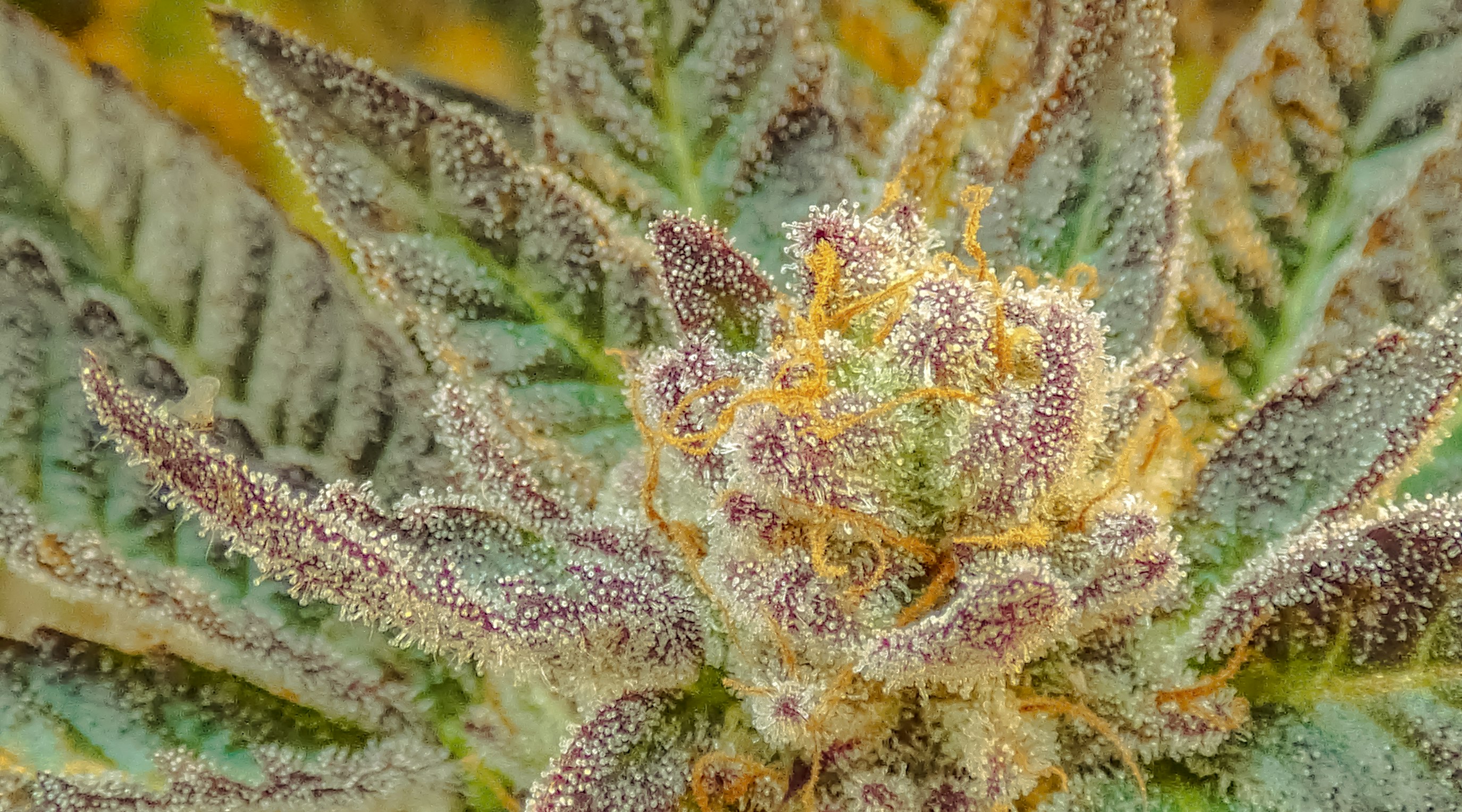THC is the cannabinoid produced by the cannabis plant that is responsible for the psychoactive high and other effects. THC is defined as one of the major cannabinoids and the one most associated with intoxication. It can offer a sense of euphoria for many patients when the potency is high, or it is administered in large quantities. However, THC does not only have to be consumed in these large amounts. The effects of lower doses are also becoming known, and research is pointing towards the fact that it may effectively manage symptoms such as pain, anxiety, and inflammation.
High THC products, when administered for long periods, may interfere with healthy sleep and eating habits. In addition, chronic use may lead to acute and long-term cognitive impairment.
What is considered high THC?
Definitions of high THC products will differ depending on each country’s regulations, but generally speaking, strains testing 15% THC or higher are usually classified as containing high levels of THC. The UK limits THC potency to 0.2% for non-prescribed products containing cannabinoids, which are considered very low THC. Medicinal cannabis was made legal here in the UK in November 2018, allowing doctors to prescribe medical cannabis products that contain more than 0.2% THC.
Cannabis effectiveness has historically focused on potency associated with psychoactive effects, but the latest research is focusing on THC potency’s role in the overall entourage effect chemical activity.
What is the entourage effect?
The "entourage effect” is a term used to describe the synergistic action of all the compounds found in the cannabis plant, including THC and CBD. This combination of cannabinoids, terpenes, and flavonoids has been shown to enhance their individual therapeutic benefits.
THC potency may be important in determining the desired effects when using medical cannabis, particularly for pain relief or sleep-related problems. Stronger levels of THC can be beneficial for some patients, but there are potential downsides as well.
THC is not the only cannabinoid in cannabis, and many medical cannabis patients prefer to administer or apply products that have a balanced ratio of both THC and CBD. Products with higher levels of both cannabinoids often produce more therapeutic effects than those with elevated levels of only one compound.
How THC levels are measured
Third-party independent labs test THC levels using High-Performance Liquid Chromatography (HPLC). The laboratory will indicate this level on the Certificate of Analysis (CoA) as part of regulatory compliance. It ensures a thorough assessment of product quality and safety.
The THC potency of a cannabis product is usually expressed as an average percentage, such as 18% or 20%, meaning that this amount of the total plant material is made up of THC. It’s important to note that the THC percentage may vary slightly from batch to batch because natural plants are not always uniform in their chemical composition.
Legal cannabis strains have generally increased in potency over the past few decades due to genetic breeding advances and patient demand for higher THC levels. This trend will most likely continue. As more research studies indicate the importance of the total cannabinoid profile for medical purposes instead of products offering isolated cannabinoids, balanced ratio products will most likely increase their market share.
The potential risks and benefits of high THC cannabis
The list of potential benefits, as well as the possible risks of administering high THC percentage products for medical purposes, is still being explored. But as more countries legalize cannabis and researchers become more aware of the various cannabinoid combinations, the beneficial effects will become clearer.
As with all mind-altering substances, there may be a risk of dependency issues associated with THC products. On top of this, high-THC products may also:
- Impair cognitive functions
- Alter perceptions
- Interfere with sleep and eating habits.
- Increase heart rate
With that said, higher concentrations of THC may be required for medical cannabis patients to achieve the desired therapeutic effects. These are usually related to pain relief, reducing inflammation, improving sleep, and managing anxiety.
It is important to note that patient experiences with THC potency vary from person to person and depend on factors such as age or experience with cannabis.
Short-term effects of high THC consumption
Bioavailability is the term used to describe how quickly cannabis is absorbed into the body. This process is shaped by many factors such as strain characteristics, a person’s health, body weight, and height, among others.
Some short-term effects associated with higher THC percentage strains include sedation, muscle relaxation, and appetite stimulation. THC can affect coordination, cognition and memory, and some patients have experienced time distortion after administration. For those that struggle with anxiety, high doses of THC may exacerbate these feelings, and in some cases cause a state of panic to occur.
Long-term effects of high THC consumption
Many studies have suggested that THC may impair cognitive function. Specifically, memory and learning can be negatively impacted, especially when THC is administered in high doses and for extended periods.
Individuals with a family history of mental illness or addiction should stick to low THC and low doses. There have been some studies indicating an association between chronic cannabis use and rates of mental illness.
What are the potential medical benefits of THC?
Pain reduction, glaucoma symptom reduction, nausea, vomiting, and muscle spasticity are just some of the many diverse medical applications of THC. Studies have shown that THC can potentially help with inflammation, reduce anxiety and depression, and even help treat epilepsy.
THC has also been found to increase appetite and improve sleep quality in patients with HIV or AIDS, cancer, Alzheimer’s disease, multiple sclerosis (MS), and other conditions. It may also be beneficial for those suffering from IBS (irritable bowel syndrome) or Crohn’s disease.
That said, there is still much more research to be done in order to fully understand and harness the therapeutic benefits of this compound for medical use. In addition, experts recommend that physicians and patients consult with each other before using high-THC cannabis products for medical purposes.
Factors Affecting THC Levels
Genetics of Cannabis Strains
The level of THC in a cannabis strain largely depends on its genetics. Different strains vary greatly in terms of THC content, with some varieties having very high concentrations and others only having moderate levels.
Growing Conditions and Cultivation Techniques
Growing conditions and cultivation techniques also play an important role in influencing THC levels. High-quality plants grown in ideal environments tend to produce higher concentrations of this compound. Additionally, when plants are harvested at the right time, they tend to have a more potent effect.
Harvesting and Curing Practices
The timing of the harvest plays a huge role in the THC content, as does the curing process. If the curing is done properly, it will help to preserve the THC levels in the plant material. On the other hand, if the curing process is done incorrectly, this can lead to a decrease in potency.
Storage Methods
Finally, how cannabis is stored can also have an effect on its THC content. When cannabis is stored improperly, oxygen and light exposure can cause the THC to degrade, leading to lower potency. It’s important to store cannabis in airtight containers and away from light in order to help preserve its THC levels.
Conclusion
High-THC cannabis products can offer a range of potential medical uses for those suffering from chronic conditions. However, it is important to understand that these products can also come with potential risks and side effects.
Before taking high-THC products, it is essential to consult a healthcare professional and understand the implications of consuming such a potent substance. THC has the ability to offer a vast range of potential therapeutic benefits, but it may also cause adverse reactions if used improperly.
If you need an alternative approach to manage your health condition, Releaf is here to help. Our monthly packages are based on your cannabis prescription, and we offer specialist consultations for medical cannabis and a unique medical cannabis card for protection.





